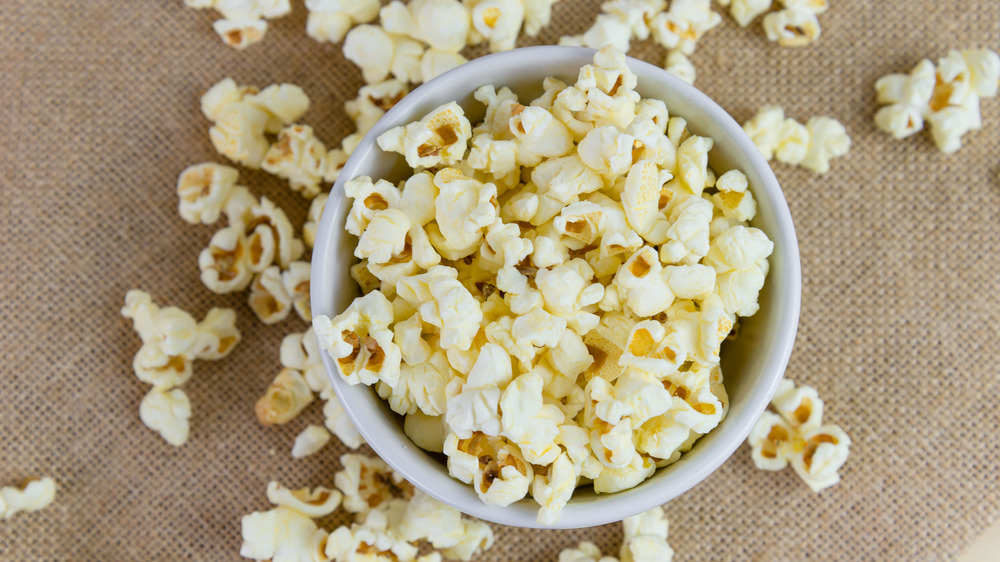You Don't Eat Enough Fiber If This Happens To You
Fiber is essential to a healthy and well-balanced diet. It can help regulate your digestive system and stabilize your blood sugar levels, yet most Americans don't eat enough of it. In fact, roughly 95 percent of Americans do not consume the recommended amount of 28 grams of fiber per day, according to a study published in the American Journal of Lifestyle Medicine. As common as it is, however, not getting enough fiber can negatively impact your health.
So how do you know if you're not eating enough fiber every day? One major sign is constipation. Fiber can help soften and bulk up your stool, making it easier to pass through your colon (via WebMD). Consuming a low fiber diet, however, can slow down your digestive system, causing constipation and bloating. Not eating enough fiber can also make you hungrier, potentially causing you to gain more weight. Fiber can help satiate you, leaving you feeling full after a meal. If you notice you're always hungry not long after eating, you might not be getting enough fiber in your diet.
Since fiber delays the absorption of sugar, not eating enough can cause your blood sugar levels to fluctuate, causing you to feel tired and lethargic. For people with diabetes, this can be especially dangerous. In addition, a low fiber diet can result in high cholesterol. Fiber binds to cholesterol and helps eliminate it from the body. Without it, your cholesterol will build up and continue to rise.
How to add more fiber to your diet
Even though most people don't eat enough of it, adding more fiber to your diet is easier than you might think. Simply eating more fruits and vegetables can drastically increase your daily fiber intake. Nonstarchy vegetables like broccoli and spinach and fruits like apples and berries are both high in fiber and are low-calorie as well, and eating them before or in between meals can help aid digestion (via Healthline). Avocados are another healthy, fiber-rich fruit. In addition to being full of monounsaturated fats, avocados contain 10 grams of fiber each.
Eating more whole grains can also increase your daily fiber intake. Oatmeal, brown rice, quinoa, farro, and bulgur wheat are all nutritious and fiber-rich whole grains that can help to improve your overall health. Popcorn is another fiber-rich whole grain that's great for snacking. Just one ounce of popcorn can contain up to 4 grams of fiber. If you're not a fan of popcorn, however, eating more nuts and seeds is another easy way to add more fiber to your diet.


